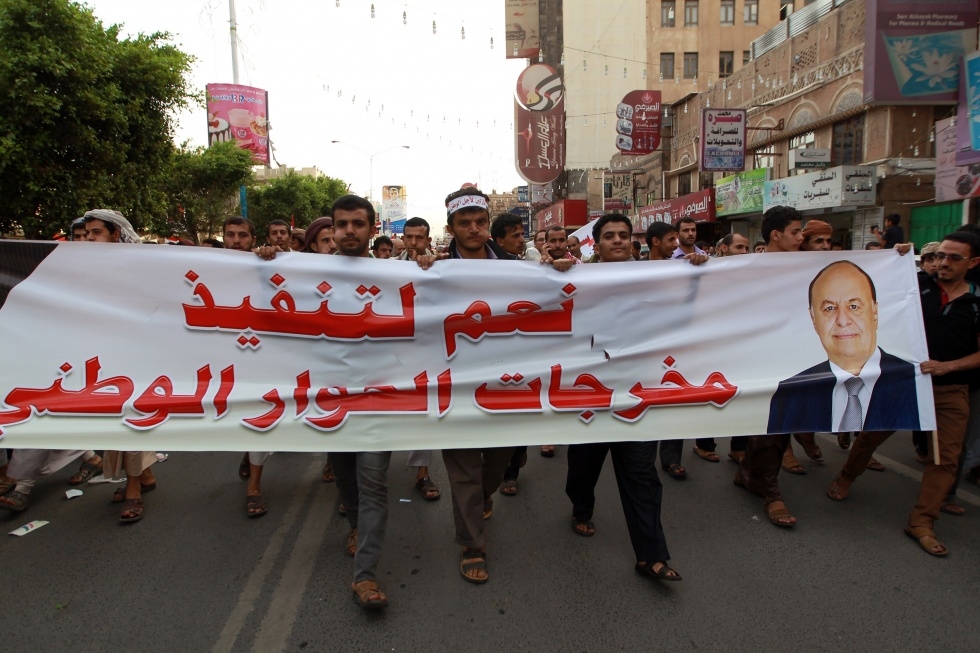21 dead as armed Shiite rebels battle pro-government tribes

At least 21 people were killed in weekend clashes between Shiite rebels and pro-government tribesmen in the north of Yemen, tribal sources said Sunday.
The fighting comes as the Zaidi Shiite rebels, also known as Huthis or Ansarullah, have been pressing for the government to step down.
The clashes have rocked the Majzar region straddling the northern province of Al-Jawf and Marib, southeast of Sanaa, since Friday night, the tribal sources said.
The pro-government tribes are trying to "stop the rebels from advancing on Sanaa," a tribal chief told AFP.
He said, on condition of anonymity, that Ansarullah fighters are trying to capture the Marib-Sanaa road, a key supply route for fuel destined for Sanaa.
The rebels have had armed fighters camped around Sanaa for the past week and held protests almost throughout August to press for the government's resignation, accusing it of corruption.
On Friday, tens of thousands of supporters of the Shiite rebels rallied in northern Sanaa while a similar number of government loyalists held a counter-protest in the south of the capital.
Three days of talks at the end of August between the Yemeni authorities and the rebels failed to reach a deal to end the political standoff.
The United Nations Security Council on Friday called on the rebels to end their armed uprising and warned of sanctions.
A Yemeni official told AFP on Sunday that channels are still open with rebel leader Abdulmalik al-Huthi and that a presidential delegation has proposals to submit to ease the impasse.
The proposals include "the formation of a national unity government, a review of fuel prices and the creation of a mechanism" for political transition in the country.
Yemen has been locked in a protracted transition since long-time dictator Ali Abdullah Saleh was forced from power in February 2012 after a deadly 11-month uprising.
Plans for a six-region federation have been rejected by both the Huthis and southern separatists, and the government is also battling Al-Qaeda militants mostly in the south and east.
On Sunday, suspected Al-Qaeda militants killed 11 Yemeni soldiers in three separate attacks in southern Shabwa province, including suicide car bombings, army sources said.
The bloodshed came a day after a double attack targeting troops in southeast Yemen left four soldiers dead. Ten Al-Qaeda suspects were also killed in an exchange of fire with troops, the military said.
New MEE newsletter: Jerusalem Dispatch
Sign up to get the latest insights and analysis on Israel-Palestine, alongside Turkey Unpacked and other MEE newsletters
Middle East Eye delivers independent and unrivalled coverage and analysis of the Middle East, North Africa and beyond. To learn more about republishing this content and the associated fees, please fill out this form. More about MEE can be found here.




